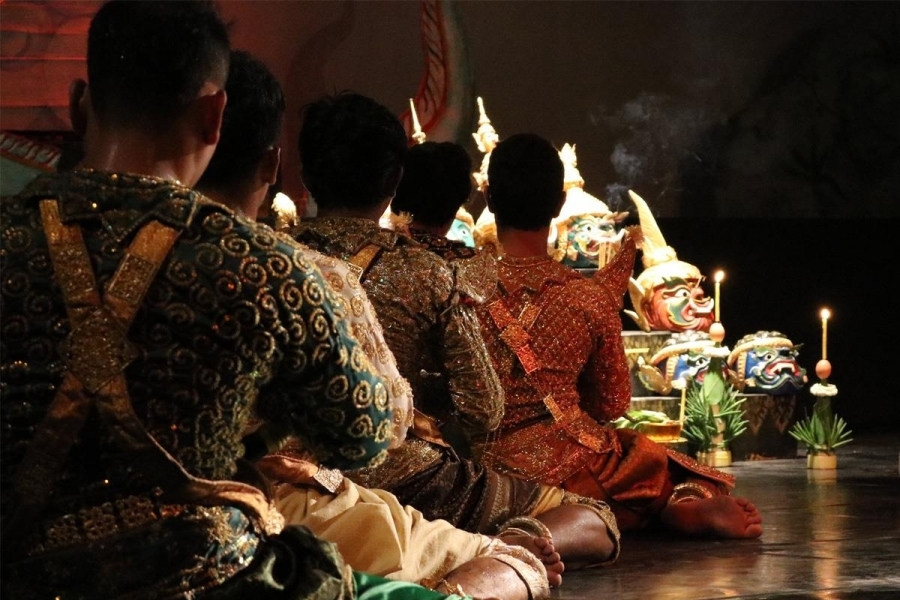As the calendar scuttles into the Year of the Rat and Khmer New Year draws to a close, what should have been a period of celebration and togetherness has been anything but.
The New Year festivities, which took place over three days from April 14-16, joined a long list of events put on hold thanks to the pandemic as they proved vulnerable to the advances of the novel coronavirus.
On April 7, Cambodia’s Prime Minister Hun Sen took the steps to cancel this year’s celebrations in the Kingdom, with citizens instructed to social distance and limit gatherings to slow the spread of Covid-19.
For Cambodian communities around the globe, Khmer New Year signifies a period to connect with their homeland and join in national celebrations, even if from afar. But this year, celebrations have also been cut short for the diaspora.
The New York City Cambodian American Association won’t be able to celebrate the New Year outside their homes as the beleaguered city has become the epicentre of the outbreak in the US, recording a death toll of close to 11,000.
In Australia, where a large diaspora is based thanks to resettlement programmes and scholarships, Cambodians have had to rethink their New Year plans, with health and safety at the forefront.
Srey Kang, president of the Khmer Community of New South Wales (NSW), explained people’s health was more important than celebrating.
“Because of the outbreak and the rapid change, we sadly decided that we couldn’t go ahead with our New Year celebrations – it was just too dangerous,” she said. “It was a tough decision – heartbreaking – but we had no other choice.”
The Khmer Community of NSW was established in 1975 by Cambodian students in Australia on a scholarship programme, and this New Year marks the first that the city’s community will not be able to celebrate since their inception. New Year festivities normally see people out-and-about in their community, not stuck behind closed doors, Kang said.
“Normally we hold prayers in the morning before offering food to the monks and elderly,” she explained. “We also organise an angel parade that signifies saying goodbye to the previous year, while welcoming in the new year.”
This is one of our biggest concerns during this time, people becoming more susceptible to depression and loneliness … They feel isolated and worried about the future that Covid-19 might bring
Srey Kang, president of the Khmer Community of New South Wales
The NSW Community has around 600 registered members, and while the decision was made with people’s safety in mind, it remains a difficult period for the group to navigate. “Because we cannot do anything, the community now feels isolated and lost,” said Kang.
While health has been prioritised, Kang fears that even though the cancellation is necessary she is concerned about people’s wellbeing. “This is one of our biggest concerns during this time, people becoming more susceptible to depression and loneliness,” she said. “They feel isolated and worried about the future that Covid-19 might bring.”
To combat this, Kang and fellow members of the community have tried to bring some aspects of Khmer New Year to households.
She has been delivering food to the monks and elderly while community members have been allowed to come to the temple, but only to drop-off food and leave. “This is very hard for me to do – to tell people that they cannot stay,” said Kang. “But it shows that while we may be physically distant, our soul and heart remain close to one another.”
900km south lies Melbourne and the suburb of Springvale, where the majority of the Cambodian diaspora in Australia reside. Youhorn Chae arrived in Melbourne after fleeing the Khmer Rouge regime. He was the first Cambodian-born Mayor in Australia, and he remains the president of the Cambodian Association of Victoria.
“Over the last 35 years since the establishment of our association, we have held Khmer New Year every year,” Chae explained. “But of course, we can’t celebrate as we usually do – not at all.”
Normally the association would celebrate with prayers and food with around 400 members, often finishing at a local Cambodian restaurant to revel in each other’s company. But the government has put a cap on more than two people in public, while restaurants are closed.
“It is very sad, but it is to ensure people’s safety,” said Chae. “And even though we cannot celebrate, we have to thank the Australian and Victorian governments because they reacted so quickly to the pandemic.”
While Chea and the Victorian community cannot celebrate as usual, they are one of the many groups across the world that is participating in a ‘Virtual Khmer New Year’ on 18 April.
Hosted by Minnesota-based IKARE, the Stay Home Khmer New Year event will feature games and performances streamed live on Facebook. Cambodians from the United States, Europe, Asia and Australia will all log-in to celebrate.
Kosol Sek, managing director of IKARE, organised the event and believes that while it is important to stay indoors, that shouldn’t mean that people can’t celebrate.

“We don’t miss Khmer New Year very often. We have only missed one, in 1975 at the start of the Khmer Rouge regime,” explained Sek. “And one of the reasons why we wanted to host this event is that we didn’t want to miss out on another New Year thanks to another sort of virus – this time, the coronavirus.”
Sek wanted to ensure that celebrations could go ahead, in a safe environment. “It’s not every day an event like this is organised, but we’ve managed to do it,” said Sek. “We wanted to promote the idea of staying safe but also staying inspired!” The event wants to encourage Cambodians, young and old, through the crisis.
Sek said that IKARE’s role is to preserve and promote the best aspects of Khmer culture following the genocide and that by ensuring the New Year could go ahead in some form, while keeping safe, it could achieve that.
“It’s one thing losing New Year to an enemy like the Khmer Rouge – but with Covid-19 you have an invisible enemy,” explained Sek. “This enemy sends shivers to many members of our community, but we hope that this global event can put people’s minds at ease, educate people about the virus while celebrating the Khmer New Year.”


